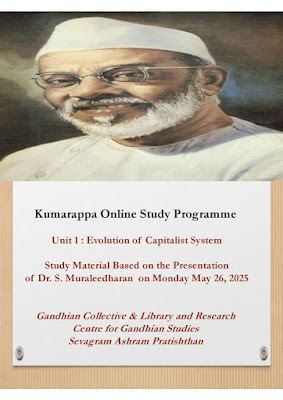Kumarappa Online Study Special Session

Health -Economic Self Reliance: G andhian Approach By Dr.Babu Joseph Monday June 30,2025 ആരോഗ്യ-സാമ്പത്തിക സ്വാശ്രയത്വം-ഗാന്ധിയൻ സമീപനം: ഡോ.ബാബു ജോസഫ് Dr.Babu Joseph About the Speaker Dr.Babu Joseph is currently serving as the Director, Nethaji Yoga Naturopathy Hospital. He is an expert in field of Naturopathy and Yoga with over 40 years of experience. His areas of expertise are Naturopathy, Yoga, and Gandhian thought.Dr. Babu Joseph graduated in Yoga Naturopathy from the Govt. Yoga Naturopathy Medical College, Hyderabad in the year 1976. He started his career as the RMO, Bethany Yoga Naturopathy hospital, Nalanchira, Trivandrum. He founded Nethaji Yoga Naturopathy Hospital in 1979 and served as Director of the National Institute of Naturopathy (NIN), Pune. Dr. Joseph is a founder board member of the World Naturopathy Federation (WNF) and Advisor to the Indian Naturopathy and Yoga Graduates Medical Association (INYGMA). Some of his Achiev...






